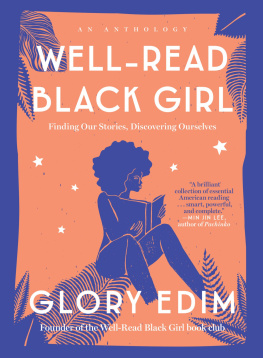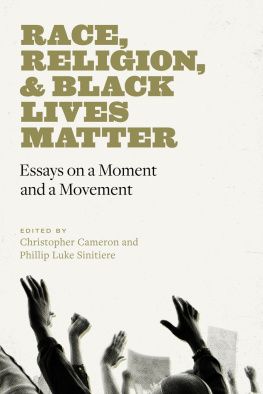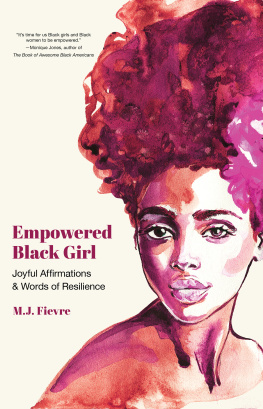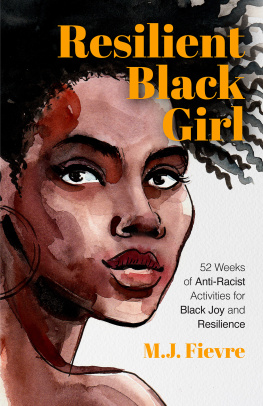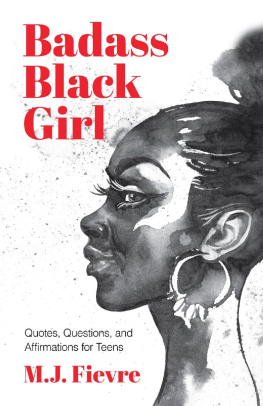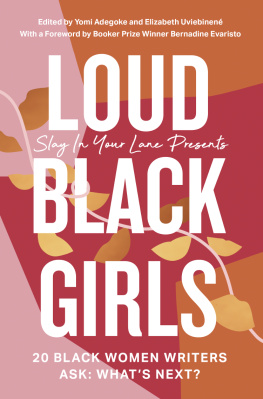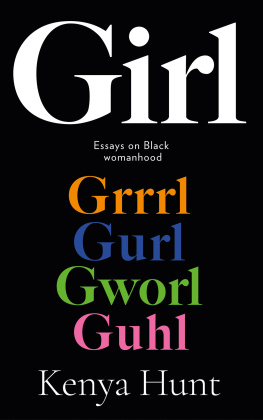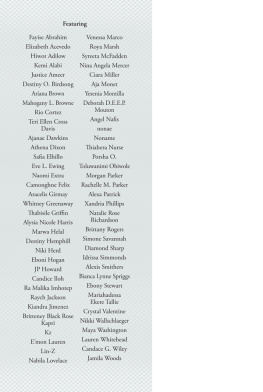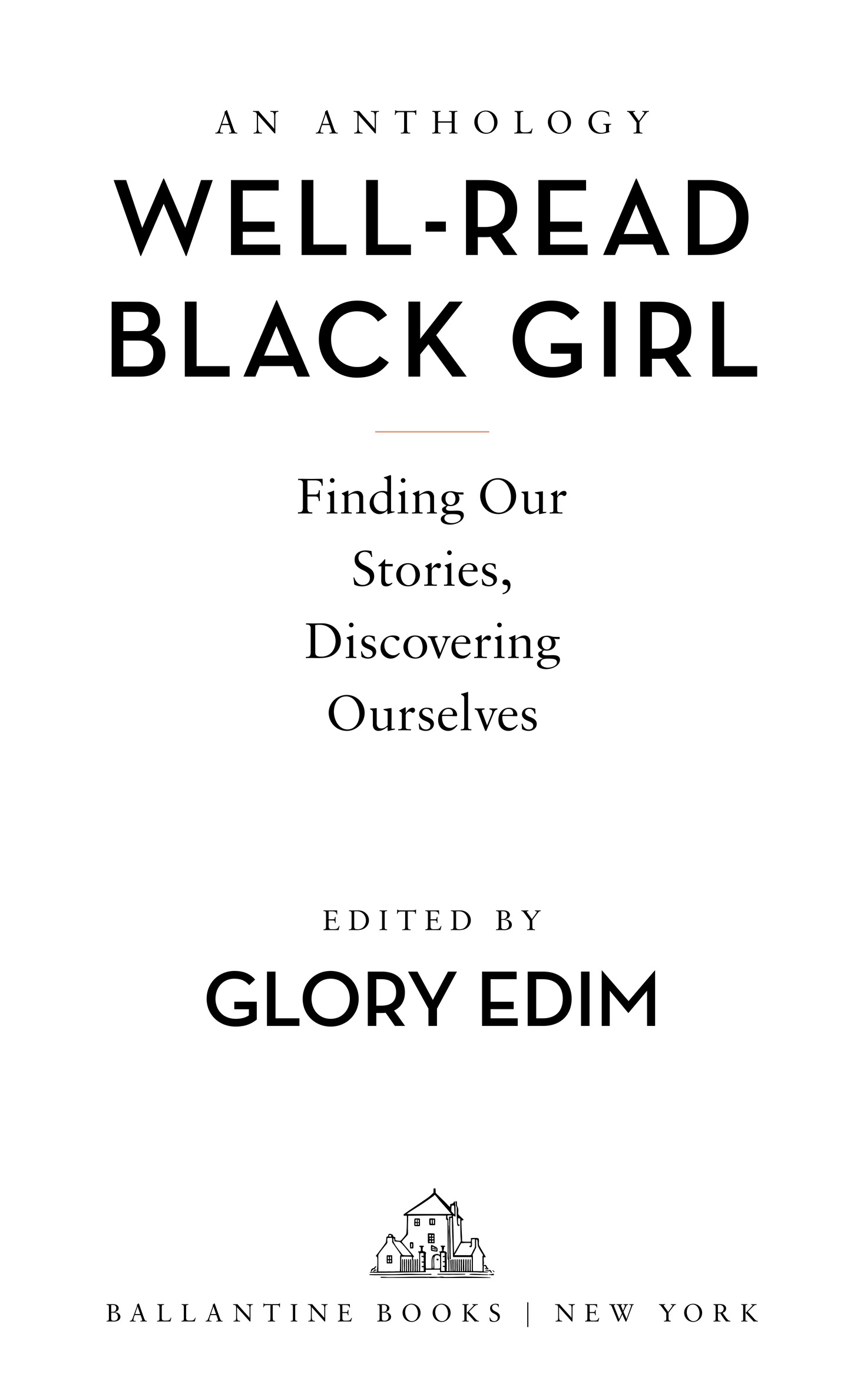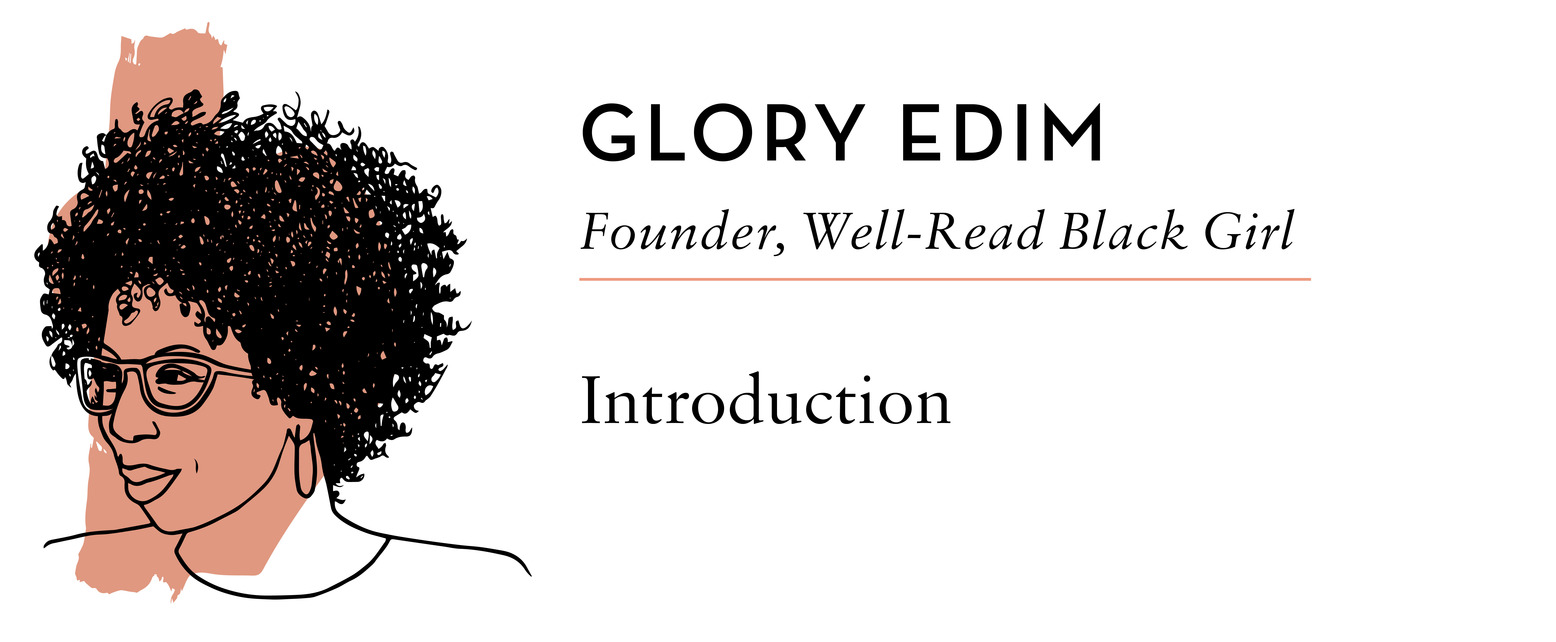Compilation, Introduction, Continue to Rise, and Putting Women Center Stage copyright 2018 by Glory Edim
Illustrations copyright 2018 by Alexandra Bowman
All rights reserved.
Published in the United States by Ballantine Books, an imprint of Random House, a division of Penguin Random House LLC, New York.
B ALLANTINE and the H OUSE colophon are registered trademarks of Penguin Random House LLC.
Copyright credits for individual essays are located on .
Grateful acknowledgment is made to the following for permission to reprint previously published material:
BOA Editions Ltd. c/o The Permissions Company, Inc.: listen children from The Collected Poems of Lucille Clifton by Lucille Clifton, copyright 1972, 1987 by Lucille Clifton. Reprinted with permission of The Permissions Company, Inc. on behalf of BOA Editions, Ltd., www.boateditions.org.
Copper Canyon Press c/o The Permissions Company, Inc.: wont you celebrate with me from The Book of Light by Lucille Clifton, copyright 1993 by
Lucille Clifton. Reprinted with permission of The Permissions Company, Inc. on behalf of Copper Canyon Press, www.coppercanyonpress.org.
Farrar, Straus & Giroux: fear, the drum, mommies, and excerpt from daddies from Spin a Soft Black Song: Poems for Children by Nikki Giovanni, copyright 1971 by Nikki Giovanni. Reprinted by permission of Farrar, Straus & Giroux. All rights reserved.
N. K. Jemisin: Dreaming Awake by N. K. Jemisin. Reprinted by permission of the author.
Hardback ISBN9780525619772
Ebook ISBN9780525619789
randomhousebooks.com
Book design by Susan Turner, adapted for ebook
Cover design: Sharanya Durvasula
Cover images: Alexandra Bowman (girl), Shutterstock (foliage)
v5.3.2
ep
Contents
wont you celebrate with me
by Lucille Clifton
wont you celebrate with me
what i have shaped into
a kind of life? i had no model.
born in babylon
both nonwhite and woman
what did i see to be except myself?
i made it up
here on this bridge between
starshine and clay,
my one hand holding tight
my other hand; come celebrate
with me that everyday
something has tried to kill me
and has failed.
All the books in my library hold a memory. When I was a child, they fulfilled promises and offered me a clear view of worldsboth real and imagined. My earliest memory is of my mother reading Eloise Greenfields Honey, I Love and Other Love Poems. She would hold me in a tight embrace as we lay in bed. Our nighttime ritual was complete after reading several poems, where she emphasized the word love in every stanza. Honey, I Love served as an ode to my childhood, and I recognized myself immediately on the page; a Black girl with wide eyes, full lips, and thick braided hair. The book was my first introduction to poetry that was full of rhythm and everyday language. I was delighted to learn that my trip to the grocery store could be a poem. Greenfields use of prose is simple and memorable: her vision unyielding. At five years old, I was proud to be Black.
Eloise Greenfields poetry, and the reflection of myself I saw in her pages, gently led me toward authors like Toni Morrison, Zora Neale Hurston, Alice Walker, Audre Lorde, Maya Angelouand many more. The authentic and captivating stories created by these authors have been passed down from one generation of Black women to the next, and the next. In reading them myself, getting to know them in my own way, their books and profound literary legacy have become my inheritance.
Can you recall your first encounter with The Bluest Eye, Their Eyes Were Watching God, or The Color Purple? Those are the memories that pull Black women toward one another and solidify our unspoken sisterhood. Reading highlights the intersection of narrative and self-image to create compelling explorations of identity. Reading allows us to witness ourselves. Being a reader is an incredible gift, providing me with a lens to interpret the world. Most important, it has invigorated my imagination and allowed me to choose which narratives I want to center and hold close.
In her essay The Reader As Artist, Toni Morrison described the act of reading this way:
That Alice-in-Wonderland combination of willing acceptance coupled with intense inquiry is still the way I read literature: slowly, digging for the hidden, questioning or relishing the choices the author made, eager to envision what is there, noticing what is not. In listening and in reading, it is when I surrender to the language, enter it, that I see clearly. Yet only if I remain attentive to its choices can I understand deeply. Sometimes the experience is profound, harrowing, beautiful; other times enraging, contemptible, unrewarding. Whatever the consequence, the practice itself is riveting.
Yes, the practice itself is rivetingits always been that way for me. I continued to read more and more stories, and, growing up, I developed an unrelenting trust in my authors.
The sentences offered satisfaction and a newfound self-awareness. The worlds they created allowed me to look for parallels in my own life. With every book I read by a Black woman, I attempted to fully acknowledge my own triumphs, fears, and pain, without reservation. I learned to understand the significance of Pecola Breedlove, Janie Crawford, and Celie. Their fictional experiences were different from mine, yet their voices offered a reflection that I desperately needed. Along with so many young women, I connected to these characters justifiable yearning for love and gained tremendous strength from their courage. I discovered character-revealing moments that went to the heart of who I was.
When I was a freshman at Howard University in Washington, D.C., I worked as a reading instructor at Maya Angelou Public Charter School. I was drawn to the school because of its namesake. I had already read Angelous 1969 autobiography, I Know Why the Caged Bird Sings, twice by then. The first time was rather theatrically in the seventh grade. I recited the chapters aloud to my unassuming baby brother, Maurice. We both stumbled through the coming-of-age story and understood little of the childhood trauma she encountered. Yet I read it intently because I was intrigued by the relationship between Maya and her brother, Bailey. At twelve years old, I was seeking myself in her story, looking for the parallels in our childhoods. The second reading happened when I was much older. I was nineteen and fully aware of Maya Angelous legacy. I knew she had been San Franciscos first Black female streetcar conductor at age sixteen. I knew she had been close friends with James Baldwin and worked with Malcolm X and Dr. Martin Luther King, Jr. She was iconic. A civil rights activist, dancer, actress, journalist, and of course world-renowned author. This time Angelous distinct voice was clear in my head, and her words resonated in a visceral way. As I read about her childhood in Stamps, Arkansas, my tears flowed endlessly. I cried for her pain and for her triumphs. The relentlessness of racism that plagued her childhood, the sexual abuse she suffered, the way literature helped her to regain her voice when all seemed lost. After reading her memoir, something in my heart and mind clicked, and forever changed me. I suddenly understood that her story was part of the larger story of Black womanhood and survival. She wrote openly about injustice, celebrated Black motherhood, criticized racism in the Jim Crow South, and unequivocally fought for her own personal freedom.

